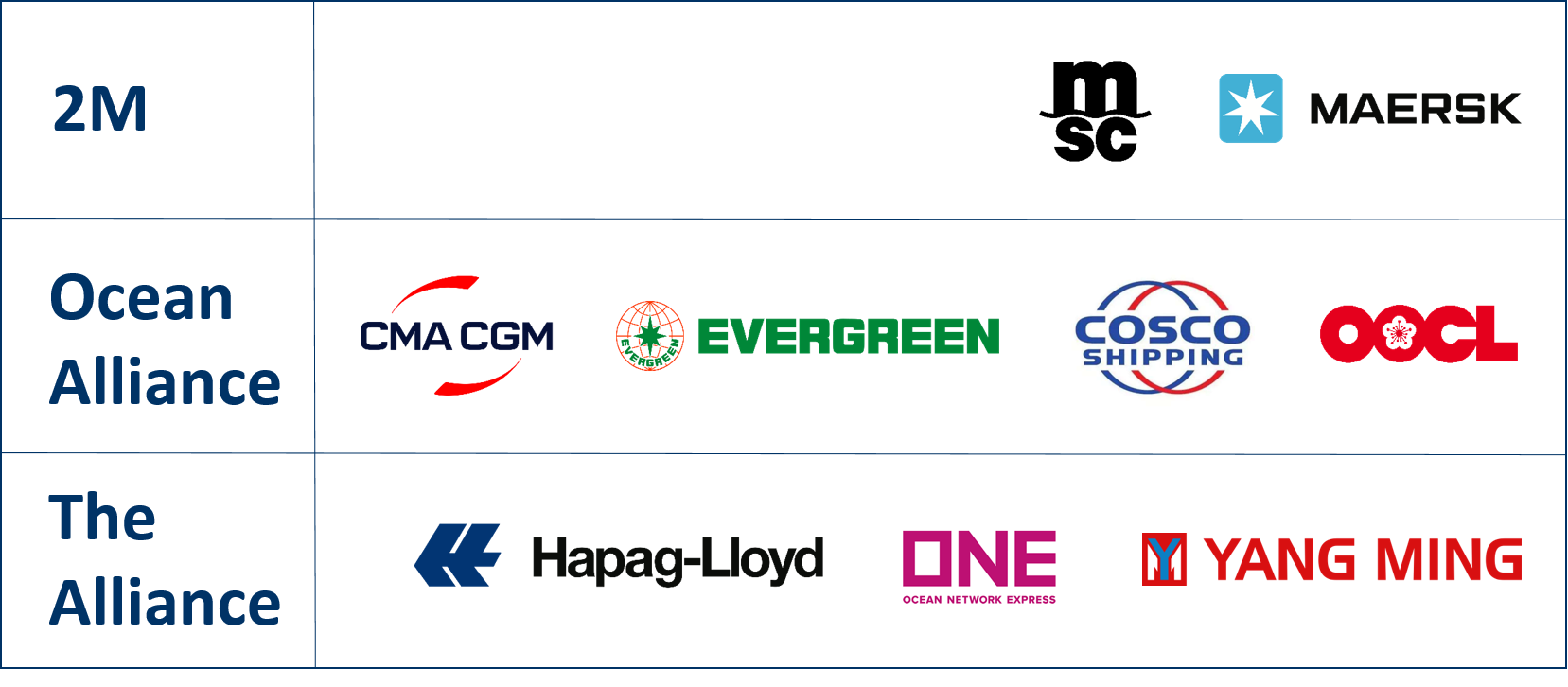Focus on Shipping Alliances
Shipping alliances emerged in the 1990s.
An “alliance” refers to a small group of carriers who pool significant assets and collaborate operationally, while retaining their own commercial and pricing identities.
Alliance members do not set freight rates collectively. Instead, they compete on prices, setting them independently. They often conclude ship-sharing agreements on major routes, each of which can be considered a relevant market in competition law jargon.
The essence of shipping alliances lies in the close collaboration between member carriers. They pool their fleets, carrying containers on each other’s behalf to extend their services and geographical coverage, with the aim of increasing market share, reducing capacity shortages, improving co-loading, optimizing port calls, and minimizing overall risks as far as possible.
Many countries consider alliances to be a source of efficiency gains, and therefore grant them general exemptions from competition law.
Major shipping alliances (in 2023)




